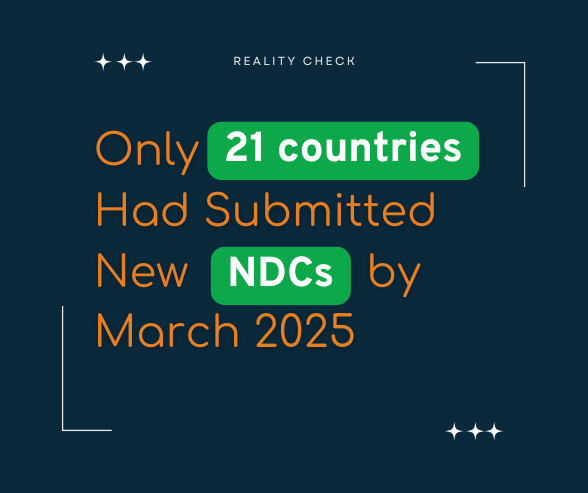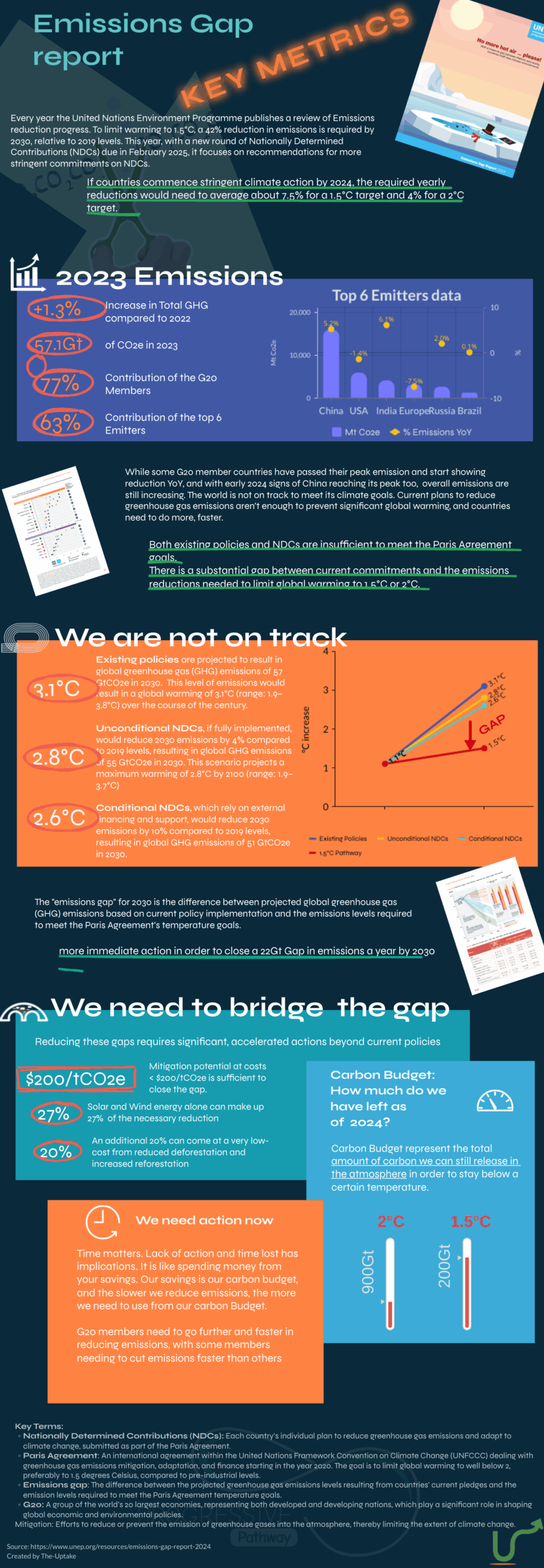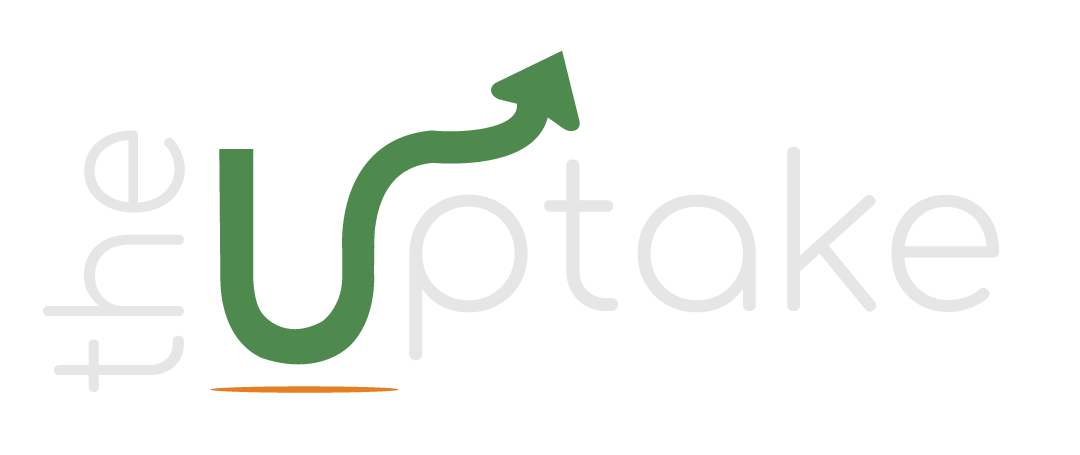
As talks about COP30 have started, I wanted to re-share this infographics I did last year before COP29 as countries were approaching a new deadline (February 2025) to submit a new set of NDCs. What has happened since? not that much! It’s an opportunity to ourselves that there is a long road ahead, and NDCs, Net-zero pledge, personal footprint reduction all play an important part in having any hope, any … to stay well below 2°C
What are NDCs?
NDCs, or Nationally Determined Contributions, are climate action plans that countries develop under the Paris Agreement. They lay out how each country intends to reduce greenhouse gas emissions and adapt to the effects of climate change. These plans are crucial because they reflect global efforts to limit warming to well below 2°C, ideally 1.5°C. NDCs have prompted countries to set more ambitious climate targets and adopt cleaner technologies. While progress is uneven, there’s evidence they’re steering investment and policy shifts toward sustainability. Still, much more needs to be done to meet global goals and protect vulnerable communities and ecosystems

What can you do?
Businesses also an opportunity to reflect on your own commitments:
- They can revisit those goals and re-evaluate them on regular basis. Are they ambitious enough? if they set a target for 2050, do they have intermediary targets for 2030, 2035 …
- Making sure that employees are engaged is often under rated. Most employee are not aware of their company sustainability strategy and how they contribute to it. As a result they are dis-engaged (79%) and companies are missing on crucial bottom-up contributions. Can they participate in the process?
- As many companies move from a “Business as Usual” mindset to a “Climate Emergency” mindset, they need to remember to give employees the understanding, skills and influence to execute on your transformation
We often underestimate how much people want to understand the plan, and be part of it. ]
80% of employees express readiness to adopt climate positive practices in their professional role
